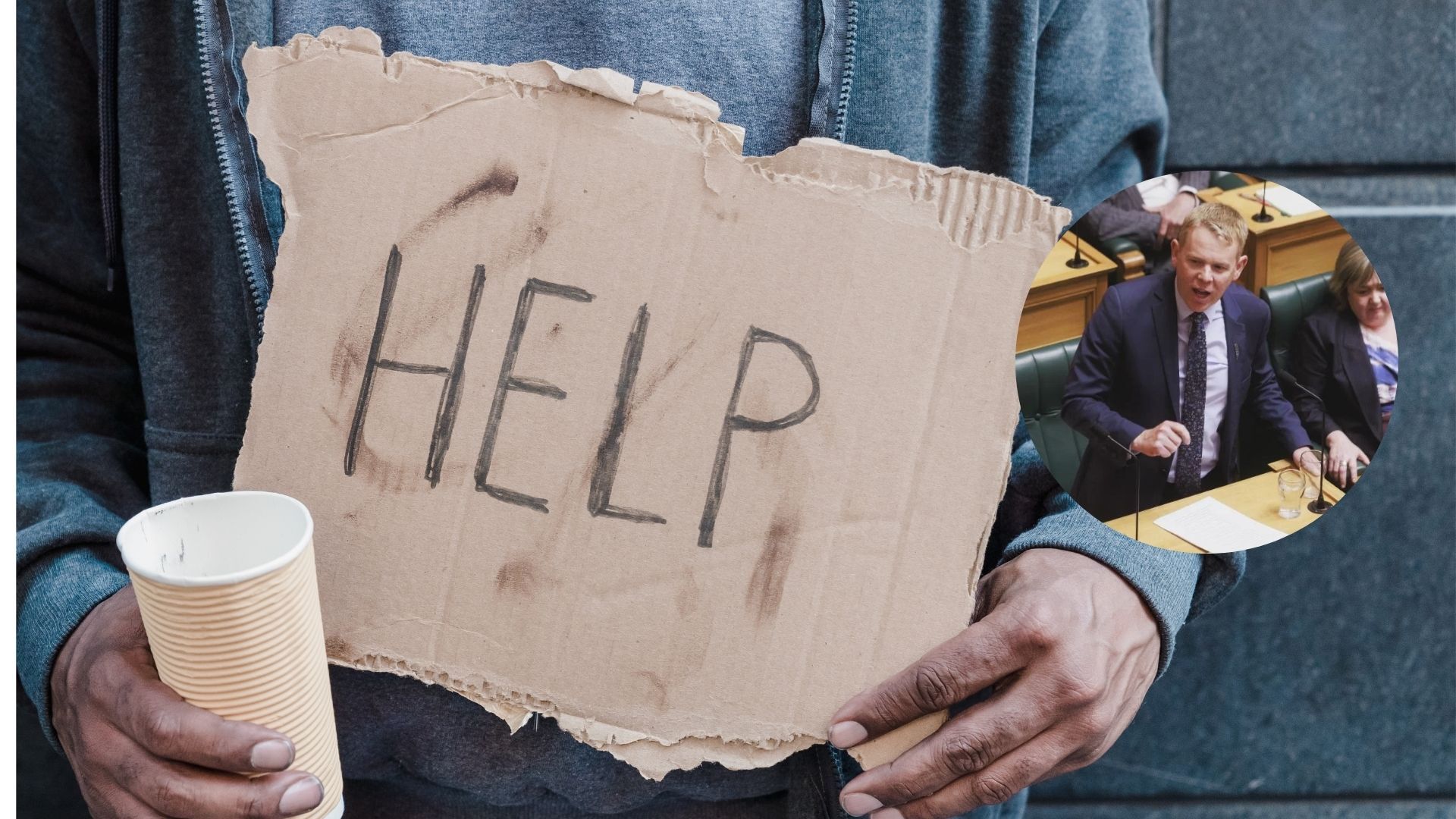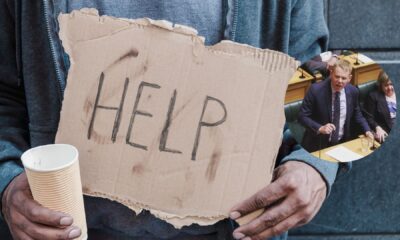Politics
New Law Proposal to Ban Begging and Rough Sleeping in Cities

The New Zealand government is advancing a controversial proposal to ban begging and rough sleeping in urban centres. Ministers, including Police Minister Mark Mitchell and Justice Minister Paul Goldsmith, confirmed on March 15, 2024, that efforts are underway to empower police and possibly other law enforcement agencies to remove individuals engaged in these activities from city areas.
This announcement follows a tense exchange in Parliament where Prime Minister Christopher Luxon faced repeated questioning from Labour leader Chris Hipkins. Hipkins sought clarity on whether the government was actively considering such a law. Luxon refrained from providing a definitive answer, stating, “there have been no Cabinet decisions or discussion on that topic.” Nevertheless, Mitchell’s comments the following day indicated that discussions are indeed progressing.
Mark Mitchell revealed that Goldsmith is collaborating with an advisory group and the Ministry of Justice to draft legislation that would allow law enforcement to request that homeless individuals vacate public spaces. Mitchell expressed strong support for this initiative, citing safety and social concerns attributed to the presence of homeless individuals in city centres. He stated, “At the moment, there are no powers to be able to move people on who come in and create social issues and intimidate people. They’re at risk themselves.”
The proposal is not entirely new. National MP Ryan Hamilton previously introduced a similar initiative through a private member’s bill, which has not yet become official government policy. Mitchell described this earlier proposal as “a really good bill” and expressed hope that it would be adopted by the government.
As part of the effort to improve urban environments, particularly in Auckland’s central business district, Prime Minister Luxon has acknowledged the need for “move-on orders.” He emphasized that any such measures must be accompanied by appropriate support structures for those affected.
Opposition leader Chris Hipkins has criticized the proposal, characterizing it as a misguided response to a complex social issue. He stated, “Making it illegal to be homeless doesn’t make someone not-homeless. Pushing them out of a CBD into a suburban area does not make them not-homeless.”
This is not the first time Paul Goldsmith has championed measures against homelessness. During his tenure on the Auckland Council in 2008, he advocated for similar restrictions allowing authorities to prevent individuals from lying or sleeping on city streets. However, Goldsmith downplayed this history, stating, “2008? I don’t even remember 2008.” He attributed the current proposal to concerns voiced by residents, retailers, and business groups, asserting, “A lot of people are concerned about the sad state of affairs in the CBD of Auckland. We can do better.”
The advisory group working with the Ministry of Justice includes representatives from various sectors, such as dairy owners’ lobbyist Sunny Kaushal, Michael Hill Jewellers manager Michael Bell, liquor store operator Ash Parmar, supermarket manager Lindsay Rowles, and Retail NZ chief executive Carolyn Young. Social service organizations, including the Māori Wardens and Auckland City Mission, are also involved in the discussions.
While the proposal has yet to be presented to Cabinet, its emergence has ignited a significant debate regarding the appropriate approach to homelessness. Questions arise over whether this issue should be addressed as a criminal matter or through social policy initiatives. As discussions continue, the implications of such a law could have far-reaching effects on the lives of vulnerable populations in New Zealand’s cities.
-

 Sports2 months ago
Sports2 months agoNetball New Zealand Stands Down Dame Noeline Taurua for Series
-

 Entertainment2 months ago
Entertainment2 months agoTributes Pour In for Lachlan Rofe, Reality Star, Dead at 47
-

 Entertainment4 weeks ago
Entertainment4 weeks agoNew ‘Maverick’ Chaser Joins Beat the Chasers Season Finale
-

 Sports2 months ago
Sports2 months agoSilver Ferns Legend Laura Langman Criticizes Team’s Attitude
-

 Sports3 days ago
Sports3 days agoEli Katoa Rushed to Hospital After Sideline Incident During Match
-

 Politics1 month ago
Politics1 month agoNetball NZ Calls for Respect Amid Dame Taurua’s Standoff
-

 Entertainment2 months ago
Entertainment2 months agoKhloe Kardashian Embraces Innovative Stem Cell Therapy in Mexico
-

 World3 months ago
World3 months agoPolice Arrest Multiple Individuals During Funeral for Zain Taikato-Fox
-

 Sports3 months ago
Sports3 months agoGaël Monfils Set to Defend ASB Classic Title in January 2026
-

 Entertainment1 month ago
Entertainment1 month agoTyson Fury’s Daughter Venezuela Gets Engaged at Birthday Bash
-

 Sports1 month ago
Sports1 month agoHeather McMahan Steps Down as Ryder Cup Host After Controversy
-

 World2 weeks ago
World2 weeks agoSevere Winds Hit New Zealand, Over 100 Flights Canceled


















